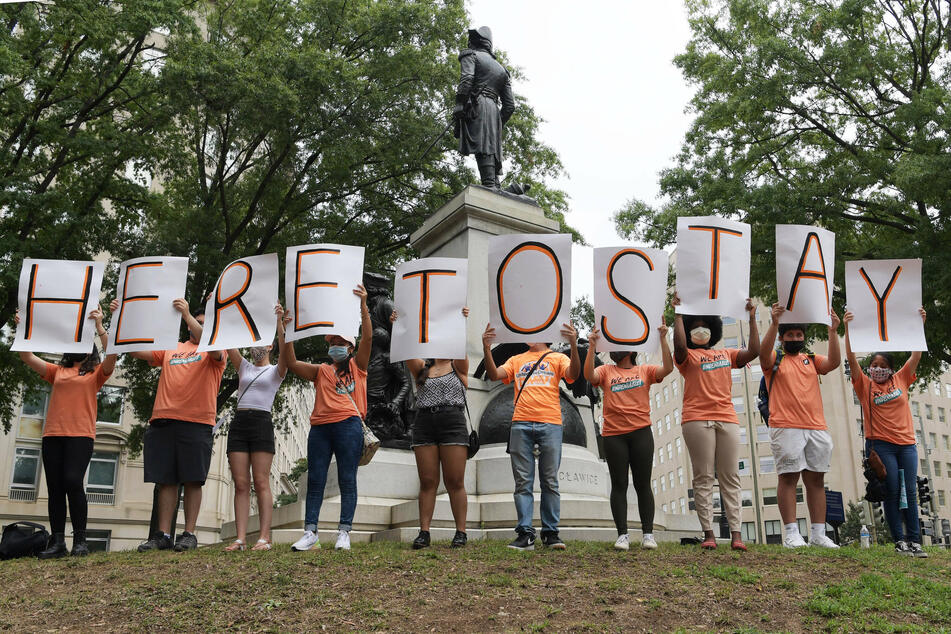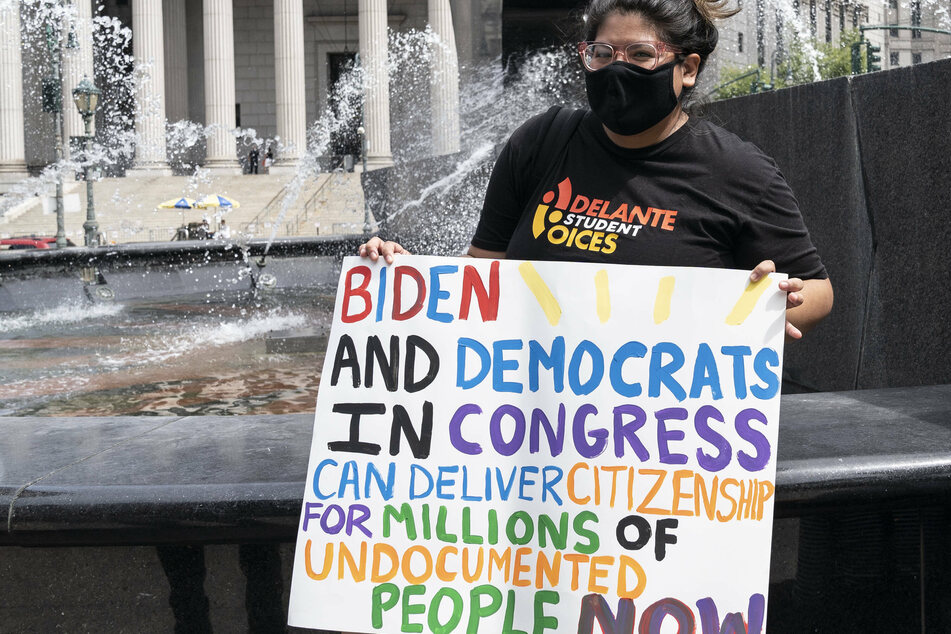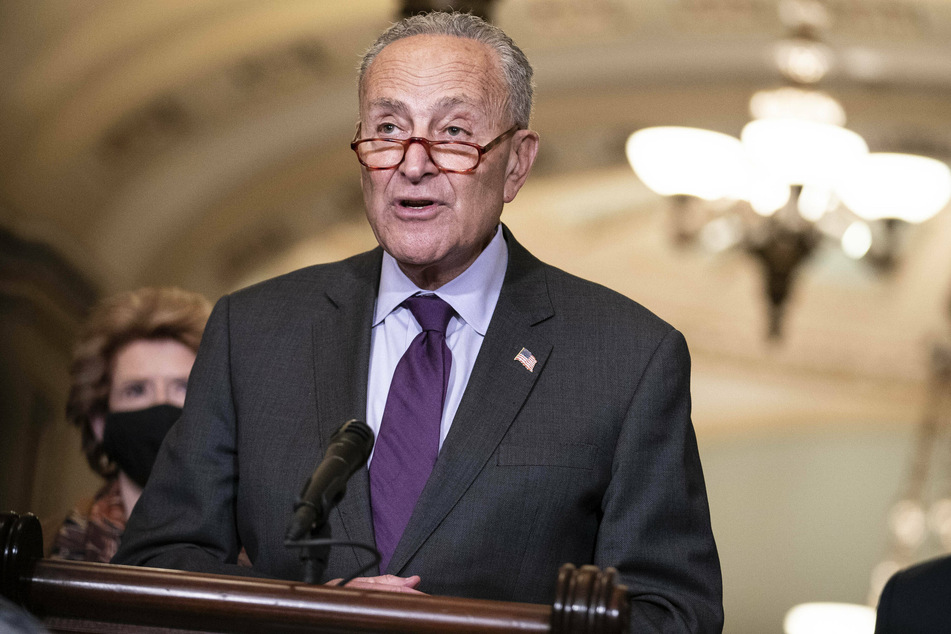Pathway to citizenship in $3.5-trillion reconciliation bill blocked by Senate parlamentarian
Washington DC – A key Senate advisor on Sunday said existing rules will not allow Democrats to include a pathway to citizenship for up to eight million immigrants as part of their upcoming social safety net bill, a significant setback for Democrats, President Biden, and so-called Dreamers, immigrants brought to the US as children.

Democrats are next expected to pitch a back-up plan that would provide a similar pathway to citizenship, but likely not cover as many people, according to sources familiar with the talks. But the ruling released Sunday is a bad sign for its chances.
Because of the special fast-track procedure Democrats are using to enact their $3.5-trillion bill, all parts must conform to Senate rules, chiefly that each provision be directly related to the federal budget.
The process, called reconciliation, allows Democrats to pass their bill with only 50 votes plus the tie-breaking vote of the vice president.
The Senate parliamentarian, Elizabeth MacDonough, advised Senate aides that the proposed pathway to citizenship would not comply, according to a document obtained by the Los Angeles Times on Sunday.
She said the proposed pathway to citizenship is a policy change with implications that far exceed what can be done through this legislative process, which is supposed to deal with issues directly related to the budget and not include major policy changes.
"Changing the law to clear the way to [lawful permanent resident] status is tremendous and enduring policy change that dwarfs its budgetary impact," she wrote.
The parliamentarian also warned that by allowing Democrats to extend citizenship with only 50 votes, it could later be revoked by the same threshold.
"That would be a stunning development but a logical outgrowth of permitting this proposed change in reconciliation and is further evidence that the policy changes of this proposal far outweigh the budgetary impact scored to it and it is not appropriate for inclusion in reconciliation," she wrote.
Republicans remain in staunch opposition

After years of unsuccessful efforts at negotiating comprehensive immigration reform with Republicans, advocates view the Democrats’ Build Back Better bill as their best chance of enacting a pathway to citizenship for undocumented people.
Democrats pitched MacDonough on a proposal that would establish a pathway to citizenship for Dreamers, or participants in the Obama-era Deferred Action for Childhood Arrivals (DACA) program, and three other groups: certain people with temporary protected status, farmworkers, and essential workers.
In a closed-door meeting earlier this month, Democrats argued the proposal was a budgetary issue because providing citizenship would cost the government about $140 billion over 10 years as new US citizens became eligible for benefits, such as Medicaid, the Children’s Health Insurance Program, and the Affordable Care Act.
Republicans countered that the immigration provisions were social policy with only a small impact on the budget.
Democrats expected to raise new proposal

Democrats are expected to go to MacDonough with a second proposal that would change existing law to make more people eligible for a green card.
The policy relies on the existing registry, an obscure part of immigration law that allows certain people who have been present in the United States since January 1, 1972, to apply for a green card even if they are in the country unlawfully.
Under this plan, that date would be changed to something much more recent, with some people pointing to a likely date of 2011. The date will depend on the total amount of money that can be spent on immigration policy in the reconciliation bill.
This plan would probably not cover as many people, particularly farmworkers and essential workers who arrived in the country in recent years.
"We are deeply disappointed in this decision but the fight to provide lawful status for immigrants in budget reconciliation continues," Senate Majority Leader Chuck Schumer said Sunday night, committing to going back to MacDonough with alternatives that have already been prepared.
Immigration advocates insist that there are multiple ways to enact the policy.
Democrats are also likely to be under pressure to overrule the parliamentarian’s guidance. But many rank-and-file Democrats have shown reluctance to do so in the past.
Cover photo: IMAGO / Pacific Press Agency

